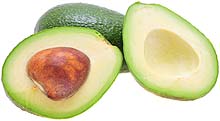Healthy Eating for the Later Years:
Eat Fats Sparingly

Excess fat may cause indigestion. Saturated fat found in red meat, chicken skin and full cream dairy products may raise the level of cholesterol in the blood. It is best to limit saturated fat and also use lower fat cooking methods, such as grilling and baking instead of frying.
Limit the use of butter, hard margarine and food with hidden fat, such as pies, and pastries. Some fats are more healthy and can be included daily, such as a little olive, sunflower or canola oil, avocados or sunflower seeds.
- A large body of research shows that olive oil can improve your cholesterol level and lower your risk of heart disease. Two studies suggest another health reason to eat olive oil: it may protect against breast cancer.
- When compared with other oils such as peanut oil, sunflower oil, corn oil and others, canola oil has one of the lowest ratios of saturated to unsaturated fats. Canola oil is also rich in omega-3 fatty acids, which has shown to be beneficial in reducing the risk of coronary heart disease. Canola oil also contains vitamin E.
- Avocados are also considered by the scientific fraternity to be one of nature's superfruits, most notably because of their nutrition density. The avo contains nearly 20 vitamins, minerals and beneficial plant compounds. It is crammed full of monosaturated fats, numerous vitamins, minerals and phytochemicals; it is also a good source of fiber and protein, and bursting with antioxidants which help fight disease-causing free radicals in the body.
- Sunflower seeds are an excellent source of vitamin E, the body's primary fat-soluble antioxidant. Vitamin E travels throughout the body neutralizing free radicals that would otherwise damage fat-containing structures and molecules, such as cell membranes, brain cells, and cholesterol. Sunflower seeds are also a very good source of thiamine, and a good source of magnesium and selenium.
|